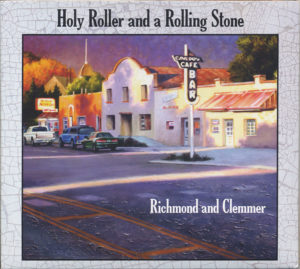By Martha Quillen
I used to be a news junkie, but even I find modern politicking exhausting and somewhat pointless. I once harbored the idea that our elected officials represented the people’s mandate, but today there are seldom mandates. Now, elections are often ridiculously close, probably because Americans usually elect partisan players who deliver partisan goals, which guarantee that a large proportion of citizens feel left out.
Elections are generally won by candidates who are good at parroting the people’s anger. That has probably always been the case, but never before did we have the technology and social media to keep political rivalries alive and the tension building twenty-four seven. Campaigning has become a perpetual event, and candidates don’t necessarily have control over their own campaigns. They rely on polls, media, their party, special interest groups, lobbyists, volunteers, email, Facebook users and robocalls to supplement campaigns and shape platforms that are frequently based on highly controversial issues. Now, anyone with a computer can collect and publish dirt on candidates, and provide commentary (true or false). Political strategists feed sectionalism by dividing people into interest groups, and appealing to them accordingly.
For at least four decades now, political divisiveness has grown in the United States, resulting in negative politicking, blatant voter suppression and cynical gerrymandering. And after elections, the candidates don’t just stop competing and start governing; they tend to remain aggressively partisan and combative. This increasing partisanship has fueled relentlessly biased journalism, and diminished our dedication to democratic ideals – ideals that should make legislators balk at the very idea of keeping voters from the polls or remapping districts for their own benefit.
The whys, wherefores and ramifications of such developments have inspired countless political books. New selections this fall include “The Fifth Risk: Undoing Democracy” by Michael Lewis, who contends that Donald Trump’s disdain for government has made him appoint inexperienced lackeys to important positions while cutting funding to critical departments, thereby leaving important functions of government in the hands of overworked, underpaid bureaucrats who are valiantly – but perhaps futilely – trying to keep vital services going.
Other authors have different ideas about what’s wrong. Tucker Carlson’s “Ship of Fools: How a Selfish Ruling Class is Bringing America to the Brink of Revolution,” lashes out at both Democrats and Republicans for being too greedy to concern themselves with growing inequality. A FOX commentator, Carlson admits he’s disturbed by some of Trump’s antics, but he makes it clear he thinks Democrats are worse. Another FOX personality, Judge Jeanine Pirro, rages against those who don’t appreciate President Trump in her book, “Liars, Leakers and Liberals: The Case Against the Anti-Trump Conspiracy.” And Ben Sasse has a new book, “Them: Why We Hate Each Osther – and How to Heal.” There’s also a mounting avalanche of tomes about specific national problems, such as our knotty race relations, voter suppression, economic inequities and sexual harassment.
I love political books, because they almost inevitably hold out the feeble hope that a democratic people can change their direction. But in October, I had plenty of voter information to tackle, and was devoting my free time to mindless fiction. So when The Atlantic arrived featuring the alarming question: Is Democracy Dying? I tossed it aside, and it ended up under a pile of political pamphlets.
I was halfway through reading the arguments for Chaffee County Resolution No. 2018-48 in the Analysis of the 2018 Ballot Proposals, when the consistently bad political choices voters face today got to me. CCR 2018-48 calls for a county sales tax to “strengthen forest health,” and conserve and support ranches, farms and rural landscapes, “and manage the impacts of growth.” And I have no doubt we need funds for such things. But too many workers in our county are being squeezed beyond belief. They can’t afford housing, can barely afford food, and too many are couch surfing, living in cars, or camping out in inclement weather. So is a sales tax a good idea? Sales taxes are generally considered regressive because they take a larger proportion of the limited earnings of the poor than of the substantial earnings of the rich and can therefore contribute to poverty and homelessness, which are already a problem in our county. Still the resolution only asks for a .25 percent increase. But Salida’s sales taxes are already high.
So what’s a voter to do? I temporarily tossed aside the analysis and picked up The Atlantic and read Anne Applebaum’s article, “A Warning from Europe: The Worst Is Yet to Come,” because it was about Poland – and I’m not obligated to make any decisions about what’s going wrong there. That article’s subhead was: “Polarization, conspiracy theories, attacks on the Free Press, and Obsession with Loyalty. Recent events in the United States follow a pattern Europeans know all too well.”
I certainly didn’t expect to gain any new perspectives from Applebaum, but I did. Her polemic mirrored Madeleine Albright’s book, “Fascism,” which warns that totalitarian regimes may thrive in today’s climate. But Applebaum’s thesis did not harken back to Mussolini, Hitler, and eighty-year-old economic and social conditions. Her article was about a far-right movement currently rising out of the tattered leftist movements embraced by Lech Walesa, Solidarity, and avid Polish rebels after 1999.
Applebaum is an American-born author, Washington Post columnist, historian and professor, who is married to Radoslaw Sikorski, a Polish politician and journalist. I checked her out online, and as it turns out, she is a long-term critic of Putin and intent on warning the world about Soviet aggression. Applebaum believes a Leninist penchant for totalitarianism is spreading across Europe and the United States. As American politics go, she tends to favor Republican fiscal policy. Yet Applebaum was steadfastly writing about connections between the Soviets and Trump, Manafort and others before the 2016 election, and even mentioned the FBI investigation into Russian intervention back then.
With the Mueller investigation underway, one would think Applebaum’s name would be as well-known as the Kardashian moniker by now. But it isn’t. Applebaum doesn’t offer any magic bullets or simple solutions. Her thesis merely indicates that political confrontations concerning fake news, conspiracy theories, growing resentment, chronic accusations, hyperbole, lies and constant drama are more international and complex than one might suspect.
I don’t know whether the future of the free world is endangered, but Applebaum’s article about what’s happening in Poland, France and Hungary made me realize how myopic we Americans can be. Whether you regard her anti-Soviet sentiments as thoroughly warranted or over-the-top, Applebaum makes one thing clear: Everything isn’t about Trump, America or Republicans versus Democrats.
Yet Americans tend to approach matters as if they were more about our differences than about Russian intervention, Julian Assange, tyrants, cartels, unstable nations, collapsing governments, desperate refuges, and the economic, political and environmental impacts of changing technology and globalization.
And meanwhile our infighting is making it impossible for American citizens and leaders to cooperate, negotiate, or agree on much of anything. And the deeper our wounds get – the clearer it becomes that our divides are less about economics and deprivation than about status, and who should run things, and what needs to be done.
There’s an old Danish proverb, “Wise men don’t quarrel with each other.” But if that’s true, I’ve never met a wise man. Maybe Americans are just naturally quarrelsome, but in recent years our querulous tendencies have risen to a new level, and now Americans appear to think disdain, humiliation and condemnation constitute wise actions.
Yet our furiously fractured political dealings may be a worse threat to our future than any outsiders. So what should a good citizen do? If I find that book, I’ll let you know.
Martha Quillen contemplates the world from the highlands of Central Colorado.


